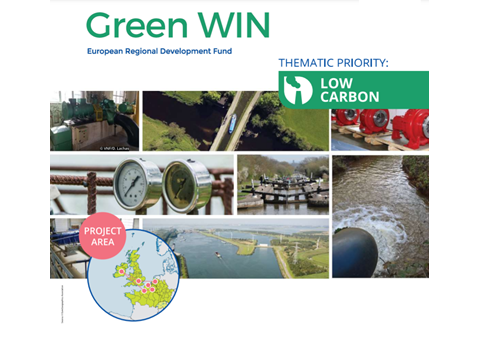The transnational Interreg North-West Europe programme supports the Greener Waterway Infrastructure (Green WIN) project’s mission to decarbonise water transport.
Creating sustainable waterways in North-West Europe: The Interreg Green WIN project
- 15 February 2022

North-West Europe has a long tradition of transporting goods and people on rivers and canals. While inland waterway transport has seen a decline in the recent decades due to the advent of cheaper road transport, it has a vital role to play in the green transition. Transporting goods by boat instead of road is many times more efficient and less carbon intensive.
To be able to play their role on the road towards decarbonisation, inland waterways need to innovate and become even more sustainable. The partners of the Green WIN project realised this and started an innovation process that will lower the CO2 emissions of pumping stations on inland waterways. The project is made up of Waterway Management Organisations, Universities, Public Service Organisations and Inland Waterways experts from Belgium, France, Germany, Ireland, the Netherlands and the UK.
Pumping stations, necessary to overcome natural barriers and height differences, need large amounts of energy to pump water upstream and uphill. The project carries out laboratory trials to optimise pumping technologies, systems and processes to reduce CO2 emissions. It also trials the incorporation of renewable energy technology into pumping systems to further reduce energy consumption.
If you want to see what Green WIN does in real life, you can check out 11 pilot sites across France, Ireland and the UK where different technologies are already being teste under real-life conditions. To disseminate the findings, the project also develops a toolkit so that waterways across Europe can become more sustainable, more efficient and more Green. A clear win-win for all!
